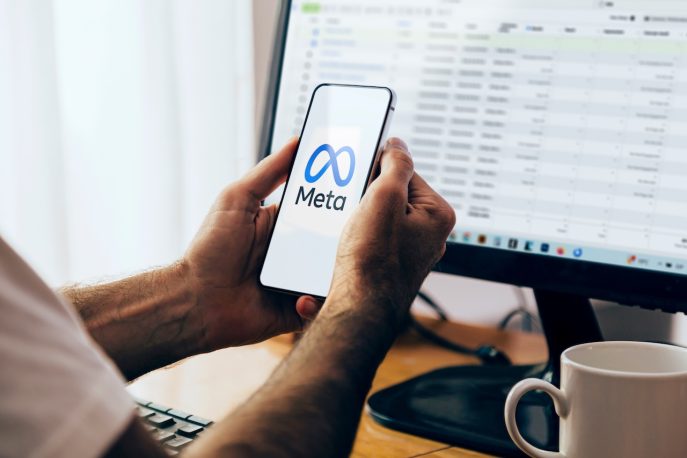Introduction: Understanding Unsecured Business Loans
Unsecured business loans are a popular form of business finance that allow companies to borrow money without the need to pledge physical assets as collateral. This makes them an attractive option for businesses that may not have significant assets or prefer not to risk their property or equipment. Unsecured business loans can be used for a wide range of business expenses, from managing day-to-day cash flow to funding growth initiatives or covering unexpected costs.
To apply for an unsecured business loan, it’s important to have a detailed business plan that outlines your goals, strategies, and how you intend to use the loan funds. Lenders will also require up-to-date financial statements and may review your business credit history and overall financial position to assess your eligibility. A strong credit history and a stable financial situation can significantly improve your chances of a successful business loan application. By preparing the necessary documents and demonstrating a clear plan for how you will use and repay the loan, you can position your business as a reliable borrower—even without offering physical assets as security.
Business Finance Options
When it comes to business finance, there are several options available to suit different needs and circumstances. Unsecured loans are ideal for businesses seeking flexibility and quick access to funds without the need to provide collateral. However, they often come with higher interest rates compared to secured loans, which require assets such as property or equipment as security but may offer lower rates.
Other options include lines of credit, which provide ongoing access to funds up to a set limit, and equipment finance, which is specifically designed for purchasing business equipment. Each finance option has its own set of requirements, benefits, and drawbacks. It’s important to carefully assess your business’s financial situation, future goals, and the purpose of the loan before deciding which type of finance is right for you. By understanding the differences between secured and unsecured loans, as well as other lending products, you can make an informed decision that supports your business’s growth and stability.
When applying for an unsecured business loan, your company’s financial health will influence the lender’s loan approval decision. But that’s just one of the many factors.
With unsecured business loans, you borrow money without any collateral. This feature is the key difference compared to secured loans and it’s also why the approval depends on the cash flow and creditworthiness of a business.
Usually, this type of loan is short-term, ranging from three months to three years. However, no one can make a claim on your business’s assets if you can’t make payments. That’s why they come with higher interest rates and shorter loan terms. When considering different loan options, it’s important to compare the interest rate offered by each lender, as even a small difference can significantly impact the total cost of borrowing.
The loan term directly affects your repayment amounts and total interest costs—shorter terms mean higher repayments but less interest paid overall, while longer terms lower monthly payments but increase total interest expenses.
Whether you want to level up your cash flow, purchase new equipment, or overcome a cash crunch, keep in mind that there are specific financial requirements for unsecured loan approval. Understanding the business loan requirements, including the necessary qualifications and documentation, is essential to improve your chances of approval.
Read on to learn about the unsecured business loan eligibility criteria used by most lenders when assessing your application.
Minimum Revenue
Most lenders will take your minimum revenue into account when assessing your application. The minimum income required for getting a loan, however, will differ for various loan types. Different loan types may have specific revenue requirements based on the risk and structure of the product. Also, this requirement varies depending on how much money you plan on borrowing. Lenders often assess eligibility criteria based on the requested loan amount to ensure the business can manage repayments.
You may be required to gross at least $200,000 a year to get a line of credit. On the other hand, equipment loans are different as they are secured by the value of the equipment that’s to be purchased.
Be sure to compare different loan options to find the best fit for your revenue and borrowing needs.
Time in Industry
Depending on the type of loan, your company’s years in operation could have a significant impact on your application. Revolving credit lines are usually reserved for businesses that are over a year old. Meanwhile, invoice factoring is typically for companies that have been operating for at least six months.
Ultimately, lenders need to be confident that you’ll be in business long enough to make repayments until the loan is fully repaid. For that reason, they will mostly be looking at companies with some trading history.
Complex businesses with multiple income streams or intricate structures may be required to provide extra documentation or meet additional requirements during the loan application process.
Personal Credit Score
One of the most crucial requirements for unsecured loan approval is having an excellent personal credit score.
Again, lenders will use this score to ascertain your creditworthiness. That is why you may be asked to include your personal credit history in addition to your company’s.
If you have bad credit, your options for unsecured business loans may be limited, and you might need to consider alternative financing solutions.
Company Credit
Building on the last point, your company must also be creditworthy.
Lenders will review your company’s credit report to assess its financial health. They will take into account your company’s existing loans to see if you can afford more debt. That means they will access the company’s credit files and scores, making it harder to get a new loan if your repayment history isn’t spotless.
Each lender has its own credit criteria that your business must meet for loan approval.
Tax Debt
If your business owes money to the Australian Taxation Office (ATO), it can negatively affect your unsecured loan application. So, you may look into getting a loan to pay off your tax debt first and increase your chances of approval.
Cash Flow
As mentioned, most unsecured loans are in the short term. And that means you will need healthy cash flow to make repayments. Demonstrating consistent business income through financial documents is also important to support your ability to repay the loan.
A general rule of thumb is to borrow no more than 80% of your monthly revenues (on average). So if your monthly revenue averages $40,000, you could borrow 0.8*$40,000 = $32,000. Anything above that sum would be unsustainable for your business. Some loan products, such as lines of credit, allow you to access funds as needed to help manage cash flow fluctuations.
But if you need to get more than 80%, it’s recommended to consider the purpose of the loan. If you plan on using the money to purchase equipment, for example, it may be better to go with equipment finance.
When choosing a loan, make sure to consider repayment options that best fit your business’s cash flow situation.
Customer Diversity
Among other things, your revenue is highly dependent on your customers. That’s why if most of your turnover comes from a single customer, this can be a red flag for lenders. That’s because losing that customer may leave your business without revenue.
But if you have a small army of customers, you may want to alert the lender to that fact.
Additionally, businesses with multiple customers often have outstanding invoices due within 30 to 90 days, which can be leveraged through invoice finance to access short-term funding and improve cash flow.
Profit Margins
Having healthy profit margins are often an essential factor for lenders when it comes to financial requirements for an unsecured loan, as strong profit margins are a key indicator of solid financial performance. Lenders will want to make sure that your profit margins are healthy, as that should make repayments more comfortable for your company.
Important Documentation
To assess all of the requirements mentioned above, lenders will most often require the following documents:
- Financial statements of your business, which may include an income statement, balance sheet, cash flow statement, and profit and loss statement
- Tax returns and statements
- Bank account statements
Lenders may also request documentation of existing and proposed repayments to assess your ability to meet loan obligations. If your business involves trusts or self managed super funds, additional documentation from these entities may be required.
Some lenders may also ask for a “director’s guarantee”. This means you, as the director, will personally guarantee to pay back the loan in the event that your company defaults. Company directors are often required to provide guarantees, especially for corporate borrowers.
It is important for the business owner to prepare comprehensive business financials and financial documents to support the application.
Loan Repayment and Management
Successfully managing your business loan repayments is essential for maintaining a strong financial position and building trust with lenders. Before taking out a loan, it’s wise to prepare a detailed business plan and financial projections to ensure you can comfortably meet your repayment obligations. Consider all factors, including interest rates, any ongoing fees, and the repayment schedule, to avoid unexpected financial strain.
Setting up a direct debit can help ensure repayments are made on time, while regularly reviewing your financial statements will keep you informed about your cash flow and overall financial health. By staying proactive and organized, you can avoid missed payments, protect your business credit score, and maintain a positive relationship with your lender. Careful planning and diligent management of your loan will help your business make the most of the borrowed funds and achieve its financial goals.
Six Reasons Why Applications for Unsecured Loans Get Declined
The strict eligibility criteria for unsecured loans is understandable. These loans are high-risk for lenders after all, which means they need to be confident that the applicants will be able to repay.
Here are six of the most common reasons why lenders decline an unsecured loan application:
- It’s a new business
- The business is part of a declining industry
- There’s an outstanding debt
- It’s a seasonal business
- Inconsistent revenue
- Low credit score
However, being an existing customer of the lender may improve your chances of approval, as lenders sometimes have more flexible criteria for existing customers.
Working with a Business Banker
Partnering with a business banker can make the business loan application process smoother and more successful. A business banker brings valuable expertise, helping you understand your finance options, prepare the necessary financial statements, and navigate the application process from start to finish. They can offer tailored advice based on your business’s unique needs and introduce you to financial products and services that align with your goals.
Building a strong relationship with your business banker ensures they have a clear understanding of your business and can advocate for you during the application process. Whether you’re applying for your first business loan or exploring new finance options, a business banker can provide the support and guidance you need to make informed decisions and secure the right loan for your business.
Apply for an Unsecured Business Loan Today
Small businesses are relying more and more on unsecured business loans as a way to raise capital. It’s mostly because standard lending options come with much stricter rules and conditions and require long-term trading history.
There are numerous reasons for applying for an unsecured business loan, such as: applying for a business loan can help you secure the financing needed for growth, expansion, or managing cash flow.
- Property purchase
- Business renovation
- Equipment purchase
- Marketing
- Inventory purchase
- Employee hiring
- Working capital increase
- Tax payment
To apply for a business loan, you typically need to gather the required documents, complete the application, and meet the lender’s eligibility criteria.
Needless to say, you can kick-start new growth opportunities for your business with an unsecured loan. Just make sure you meet the financial requirements highlighted in this article.
If you’d like to apply for this type of loan, Unsecured Finance Australia can help.
We offer unsecured business loans starting from $5,000 up to $300,000, which could be just what you need to give your business that much-needed push. Online lenders can make it easier and faster to get a business loan, often providing a streamlined application process and quick funding decisions.
We ask for minimal documentation and offer 24-hour approval. Unsecured business loans are available with both fixed interest rate and variable interest rate options, so you can choose the repayment structure that best suits your needs. Some loans offer variable interest rates, which may fluctuate over time based on market conditions.
Additionally, you may have the option to pay off your loan early, which can help you save on interest costs and avoid long-term debt.




